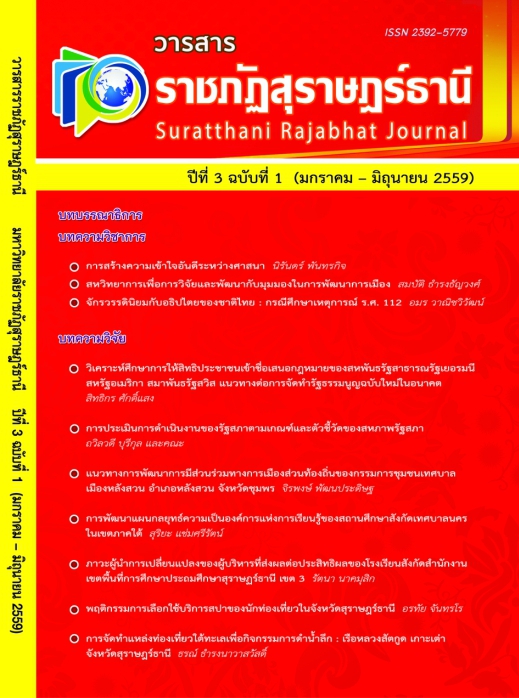Imperialism and Thailand's Sovereignty Case Study of the Paknam Incident 1893
Main Article Content
Abstract
In the period of two centuries ago, many powerful western countries invaded underdeveloped countries with their militaries and lead to the force of injustice negotiation, deprivation and colonizing. This incident was neither the cause of an coincidence nor the industry revolution, but it was the conceit with the belief that science, technology, and military authority were tools bringing mightiness and wealth to one's own country as well as Charles Darwin's concept of survival of the stronger. From the King Rama IV period, all kings of Siam were aware of the threats of this imperialism. For example, the Opium War between China and Great Britain caused the disadvantageous treaty; Japan was forced to open its country by America; Myanmar and India were colonized by Great Britain while Vietnam, Cambodia and Laos were by France. In the case of Siam, there was a problem in the relationship with France regarding the right claim over the territory of Cambodia, Xishuabanna, and the left territory of Mekong River. Great Britain wanted Siam to be a buffer state while Siam did not want to have troubles with France, so Great Britain refused to assist Siam in all ways. Hence, Siam set up strategies to maintain national independence and sovereignty by instructing leaders western cultures, establishing higher educational institutions, and allowing royal family members to study in various western countries to lay the basis for government reform. Formerly, King Rama IV sent an ambassador to develop relations with Great Britain as well as King Rama V visited European countries to make friends and enable those countries to accept Siam as an independent country with equivalent sovereignty. Furthermore, joining the World War I in the era of King Rama VI could empower the request for reviewing the treaty concerning consular court and taxation commitment beginning with the United States in the cancellation of extraterritorial rights without compensation. This was done to other western countries leading to the complete freedom.
Until now, imperialism has still been existing in forms of economic domination and taking advantages from other countries. For example, a powerful country will cease to trade with such countries having such problems of human trafficking, woman and child labour, freedom obstruction, or illegitimate state power. These cannot be solved by military power or diplomacy as in the Paknam Incident 1893, but interior organization, unity, and readiness for changes derived from the domination of technology and communication through belief and culture mixed in assistance, exchange, agreement, or interstate relationship in the world stage.


